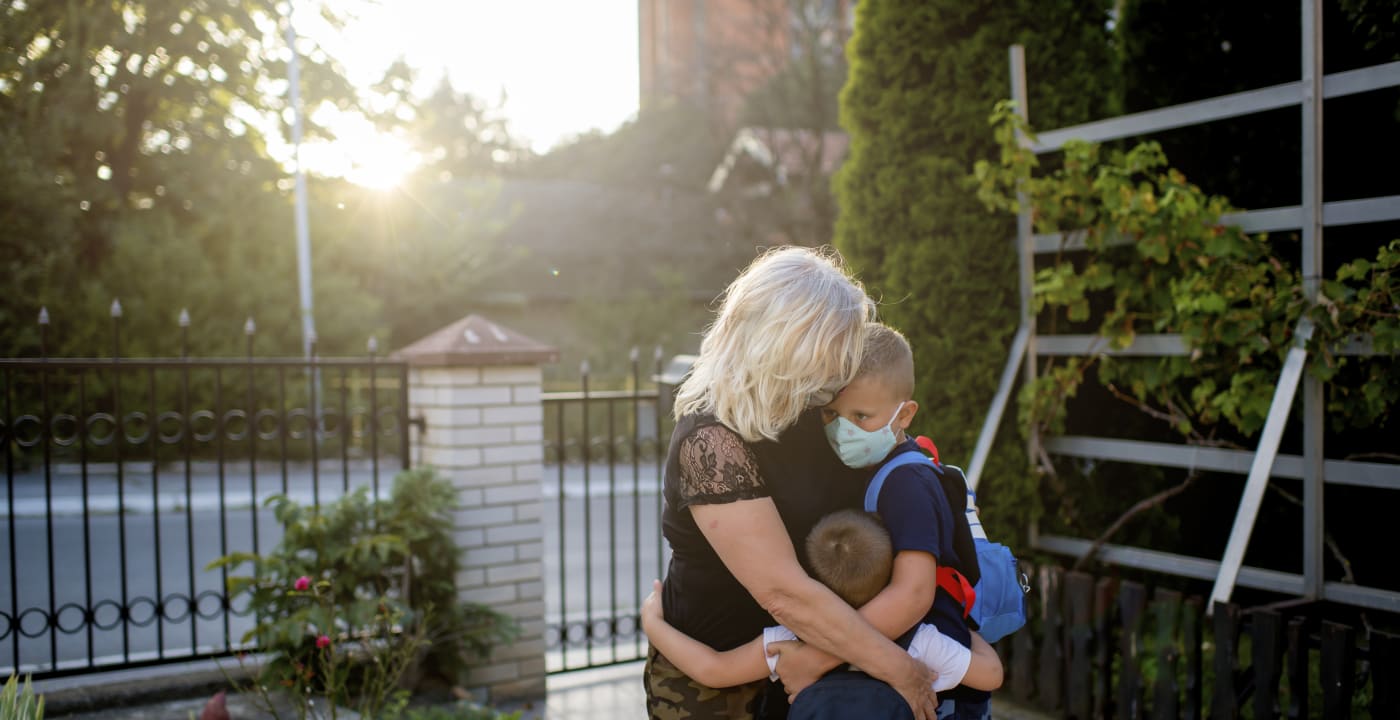Should I visit my mother this Mother’s Day?

Although COVID-19 continues to circulate widely in our region, many are — understandably — looking to celebrate this year’s upcoming Mother’s Day with in-person gatherings.
“After a year of being stuck at home and limited in our ability to visit family and friends, the prospect of getting to see our moms for Mother’s Day or, if you are a mom of adult children, getting to see your kids and grandkids, is thrilling,” said Gretchen LaSalle, MD, family medicine physician with MultiCare Rockwood Clinic – Quail Run in Spokane. “Our recent months have been so isolating and we yearn for that human connection.”
The COVID-19 vaccines and their widespread availability — everyone 16 years old and older are now eligible to be vaccinated in the United States — have brought hope and optimism to many. And yet, that optimism is tempered by other factors, including the rise of new virus variants, a loosening of restrictions in some areas, and what looks to be a “fourth wave” of virus spread developing nationwide.
With these factors in mind, here are a few things to consider when deciding whether to visit your mother or grandmother for Mother’s Day.
Who is vaccinated?
Recent guidance by the Centers for Disease Control (CDC) indicates that adults who are fully vaccinated may gather safely indoors with small groups of other fully vaccinated adults outside of their household without having to wear masks or observe physical distancing.
The guidance also indicates that the risk is low if fully vaccinated individuals visit unvaccinated people from a single household indoors without wearing masks or physical distancing — if the unvaccinated individuals are not at increased risk for severe COVID-19 disease. So, for example, a grandmother who is fully vaccinated is likely safe to visit (and hug) her grandchildren.
But it’s important to remember that “low risk” is not the same as “no risk.”
“Vaccines decrease the chances of becoming infected with COVID-19 but don’t eliminate the risk,” said Michael Myint, MD, an infectious disease specialist and epidemiologist with MultiCare.
This is especially true when only some people in group are vaccinated.
“Whenever one individual is not vaccinated, there is some risk to both individuals,” said Dr. Myint. “Meeting outdoors, staying at least six feet apart and wearing masks can all help to minimize the risk at family gatherings.”
Do you need to travel?
If you’d have to travel outside your local area for your planned Mother’s Day celebration, it’s a good idea to evaluate the case counts in the area you’d be going to, as well as how you’ll need to travel to get there.
“The safest ways if you choose to travel would be those that keep your bubble as far apart from crowds of people as possible,” said Dr. Myint. “So individual cars with families is a safer way to travel than, let’s say, a crowded bus or an airplane that has more people closely connected.”
The CDC has said that fully vaccinated people can safely resume domestic travel. Still, if you need to take public transportation to reach your destination, it’s important to continue to follow the precautions we know help limit the spread of the virus, regardless of your vaccination status, including masking and hand hygiene, as well as maintaining a 6-foot physical distance from fellow travelers as much as you can.
“If we are traveling to see others (on a plane or bus or train, for example), we have to remember that not everyone we come into contact with will have been immunized,” said Dr. LaSalle. “Gathering in the close quarters that are required for many types of transportation can still put vaccinated individuals at risk.”
What precautions are others taking?
There has been wide variation in the adoption of safety measures designed to limit the spread of the virus, such as masking, physical distancing, business capacity restrictions and so on. Family members may also have differing opinions about the virus, what steps are necessary to reduce the chances of getting sick, the value of the vaccine and so on.
“Getting together with family can be wonderful, but it can also be stressful and difficult if we don’t see eye to eye,” said Dr. LaSalle. “When dealing with family members that may have different views than you do about how to stay protected against COVID-19, try to find some common ground.”
It’s important to evaluate your comfort level not just with where you’d be gathering, but with whom. And if you are concerned about your risk of being exposed to COVID-19 at any planned in-person gathering, do not feel pressured to attend.
“There are still many cases happening despite the vaccinations, despite having gone through a year of public health measures,” said Dr. Myint. “So I would say that I would still be very cautious.”



